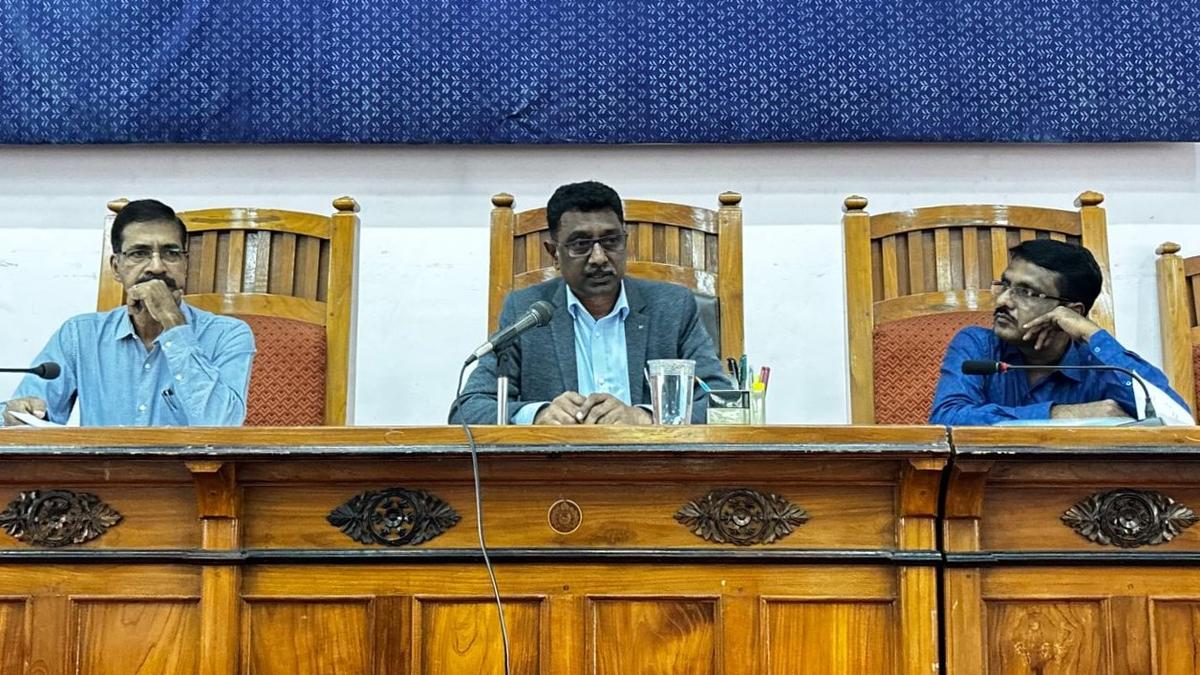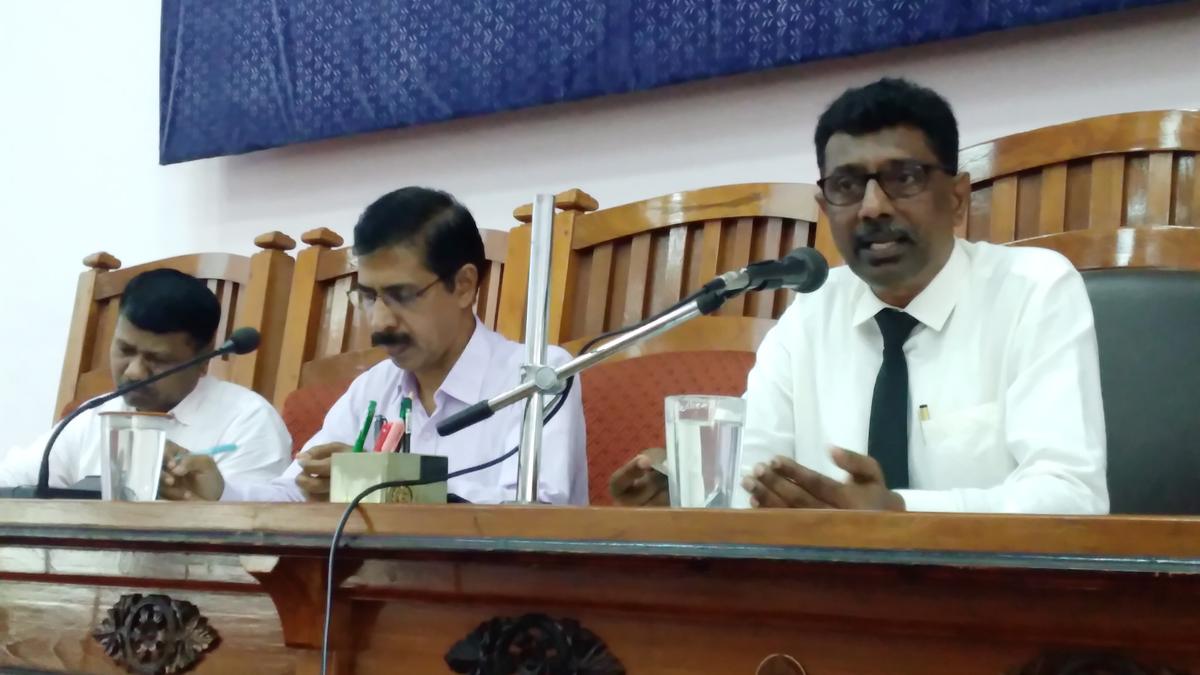The Academic Council of Mangalore University has officially approved autonomous status to Canara College, marking a significant milestone in the institution’s academic journey. The decision, taken during the Council’s recent meeting chaired by Vice-Chancellor Prof. P. Subrahmanya Yadapadithaya, is part of the university’s broader effort to encourage academic flexibility and innovation among affiliated colleges. Canara College, one of Mangaluru’s most reputed institutions with a history of over five decades, will now gain the freedom to design its curriculum, introduce new programs, and update syllabi in tune with industry and societal needs. This autonomy aligns with the National Education Policy (NEP) 2020’s emphasis on academic decentralization and multidisciplinary learning.
With the new status, Canara College will be able to revamp its examination system, introduce credit-based courses, and develop contemporary subjects such as data analytics, environmental studies, and digital media. The institution, known for its strong focus on commerce, science, and management education, will now expand its academic portfolio to include emerging disciplines that prepare students for global competitiveness. Faculty members believe that autonomy will enhance both teaching quality and student outcomes, fostering research, creativity, and skill-based education. The college has consistently maintained high academic performance and accreditation scores, making it a strong candidate for autonomy. This recognition also reflects the growing trust between universities and their constituent institutions in Karnataka’s higher education ecosystem.
The move follows the University Grants Commission (UGC) guidelines that encourage capable colleges to adopt autonomous governance models. The goal is to empower institutions to respond swiftly to evolving academic demands without bureaucratic delays. Mangalore University’s Academic Council, after thorough evaluation of infrastructure, faculty strength, and student performance, deemed Canara College fit for autonomy. This decision is expected to inspire other colleges under the university to pursue similar status. Autonomy, officials say, does not mean separation from the university but academic freedom within a collaborative framework that ensures accountability, quality assurance, and innovation.
The decision to grant autonomy to Canara College comes after years of consistent academic excellence, high student performance, and infrastructural development. Established in 1973 under the aegis of Canara High School Association, the institution has long been recognized for its emphasis on discipline, ethics, and quality education. The college’s commitment to maintaining high standards in both academics and co-curricular activities made it a natural choice for autonomous recognition. Officials from Mangalore University noted that Canara’s readiness for autonomy was evident from its progressive academic environment and its eagerness to adapt to national reforms.

Over the past few years, Canara College has actively implemented innovative teaching methods, including digital classrooms, experiential learning modules, and interdisciplinary projects. The shift toward autonomy will allow the institution to formalize these practices into the curriculum. Faculty members can now update syllabi more frequently, keeping pace with global academic trends and industry needs. The introduction of flexible credit systems and continuous evaluation methods is expected to reduce examination stress and improve holistic learning outcomes for students.
Autonomy also empowers colleges to frame new academic regulations suited to their context. Canara College will have the authority to establish its own Board of Studies and Academic Council, which can approve curriculum updates, evaluate teaching quality, and oversee research initiatives. This academic self-governance encourages faster decision-making, making the institution more agile in addressing emerging challenges. It also opens the door for collaborations with foreign universities and industries through tailor-made courses and joint programs.
Students at Canara College are expected to benefit immensely from the autonomy status. With greater academic flexibility, the college can introduce multidisciplinary electives that allow learners to blend subjects like commerce with computer applications or science with environmental studies. This approach aligns with NEP 2020’s vision of flexible learning pathways. The introduction of internships and hands-on projects will ensure that students graduate with practical experience, enhancing employability and global competitiveness.
Academic Freedom and New Opportunities
Autonomy enables colleges to introduce value-added courses, redesign assessments, and create flexible learning pathways. Canara College plans to incorporate internships, industry partnerships, and research projects into its curriculum to make students more employable. The institution also intends to establish centers for innovation and entrepreneurship to nurture student startups. These reforms will help bridge the gap between academia and industry, preparing graduates for the evolving job market.
For faculty members, autonomy means greater academic ownership and opportunities for pedagogical innovation. Teachers will have the liberty to design coursework that integrates case studies, field work, and digital learning modules. The overall aim is to make education outcome-oriented, skill-driven, and globally relevant while retaining the institution’s legacy of ethical and value-based learning.
A Milestone in Higher Education Governance
The Academic Council’s decision symbolizes a shift toward progressive academic governance in Karnataka. Canara College joins a growing list of reputed institutions under Mangalore University that have embraced autonomy as a tool for educational excellence. The move will reduce administrative dependency and encourage proactive decision-making at the institutional level. Experts suggest that autonomy allows colleges to evolve into future universities, capable of conducting independent research and collaborations with international partners.
As Canara College begins this new chapter, its stakeholders—students, faculty, and alumni—are optimistic about the transformation ahead. The institution’s management has pledged to uphold transparency, inclusivity, and innovation in implementing the new framework. Mangalore University officials, meanwhile, reaffirmed their commitment to providing guidance and oversight to ensure the college continues to meet academic benchmarks. This decision marks not just a milestone for Canara College but also a defining moment in Karnataka’s pursuit of quality higher education that empowers learners and institutions alike.

For Mangalore University, the decision reflects its ongoing efforts to promote quality assurance through decentralization. By empowering competent colleges, the university can focus more on research, policy guidance, and standard-setting rather than micromanagement. University officials emphasized that autonomy does not mean complete independence but rather a shared model of governance where both the university and the college collaborate to achieve excellence. This structure ensures accountability through periodic audits and academic reviews.
The approval process for Canara College’s autonomy involved a rigorous assessment. Committees evaluated infrastructure, faculty qualifications, research output, and financial stability before recommending the proposal. The institution’s NAAC accreditation, student feedback mechanisms, and digital learning resources were key factors in the decision. The university also examined how the college handled online and hybrid learning during the pandemic, finding its adaptability commendable. Such preparedness strengthened its case for autonomy.
Local educationists have hailed the decision as a transformative step for higher education in coastal Karnataka. They believe it will set a benchmark for other colleges to follow. The region, known for its strong academic culture, has long been a hub for commerce and science education. With Canara College gaining autonomy, experts predict a ripple effect, encouraging other well-performing colleges to pursue similar recognition. This could lead to an overall enhancement in educational standards across Dakshina Kannada.
The Canara High School Association, which manages the college, has expressed gratitude for the recognition. Members of the management committee stated that autonomy will enable them to strengthen their vision of holistic education. They plan to invest further in infrastructure, laboratories, research centers, and digital platforms. The association also emphasized its commitment to maintaining the legacy of discipline and values while embracing modern pedagogical methods.
Faculty members see autonomy as a recognition of their collective efforts over the years. Many teachers have undergone advanced training programs and research fellowships to improve classroom delivery. The new structure will allow them to innovate without waiting for lengthy university approvals. Faculty can now design need-based courses, initiate add-on certification programs, and collaborate with industries for live projects. Such academic freedom is expected to boost morale and productivity among the teaching community.
Students, too, have welcomed the change with enthusiasm. Representatives from the student council stated that autonomy will help create a more engaging and relevant learning environment. They believe that practical exposure, choice-based credit systems, and project-based assessments will make education more enjoyable and effective. Student clubs and forums are already planning to align their activities with the new academic goals to enhance overall campus vibrancy.
In terms of governance, Canara College will now constitute its own academic and examination boards. These bodies will ensure that the institution maintains the same standards of fairness and transparency as the parent university. The college will also have to undergo periodic reviews by the university and UGC to retain its status. This balance of freedom and accountability ensures that autonomy translates into quality rather than complacency.
The shift to autonomy will also strengthen the college’s research culture. With independent control over curriculum and funds, Canara College can encourage undergraduate research and faculty-led projects. Collaborations with industry and government departments will help generate research that is both applied and impactful. The management plans to set up a research cell dedicated to promoting innovation, publications, and patents among students and staff.
The new status provides an opportunity for the college to enhance community engagement. Canara College has a long history of social outreach programs—ranging from literacy drives to environmental campaigns. Under autonomy, it can now design extension courses and social impact projects that directly benefit local communities. This will integrate social responsibility with academic learning, reflecting the college’s founding vision of service-oriented education.
Follow: Karnataka Government
Also read: Home | Channel 6 Network – Latest News, Breaking Updates: Politics, Business, Tech & More

